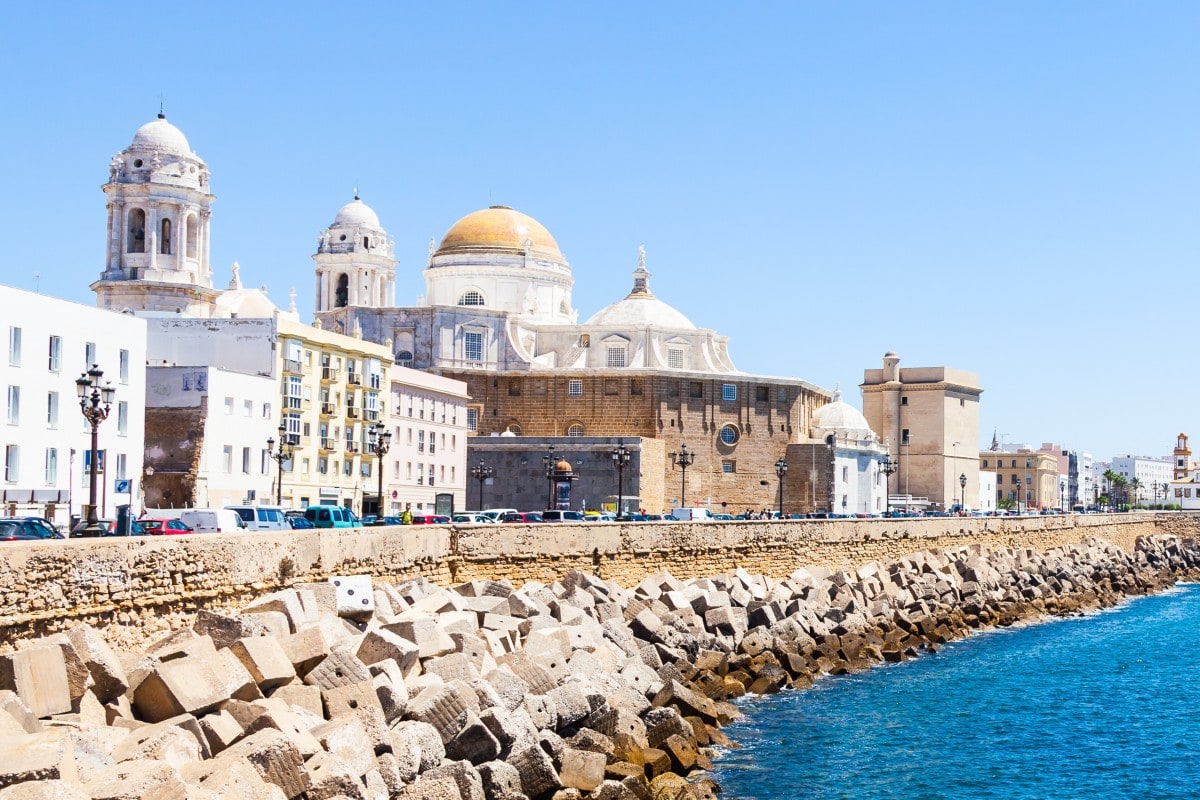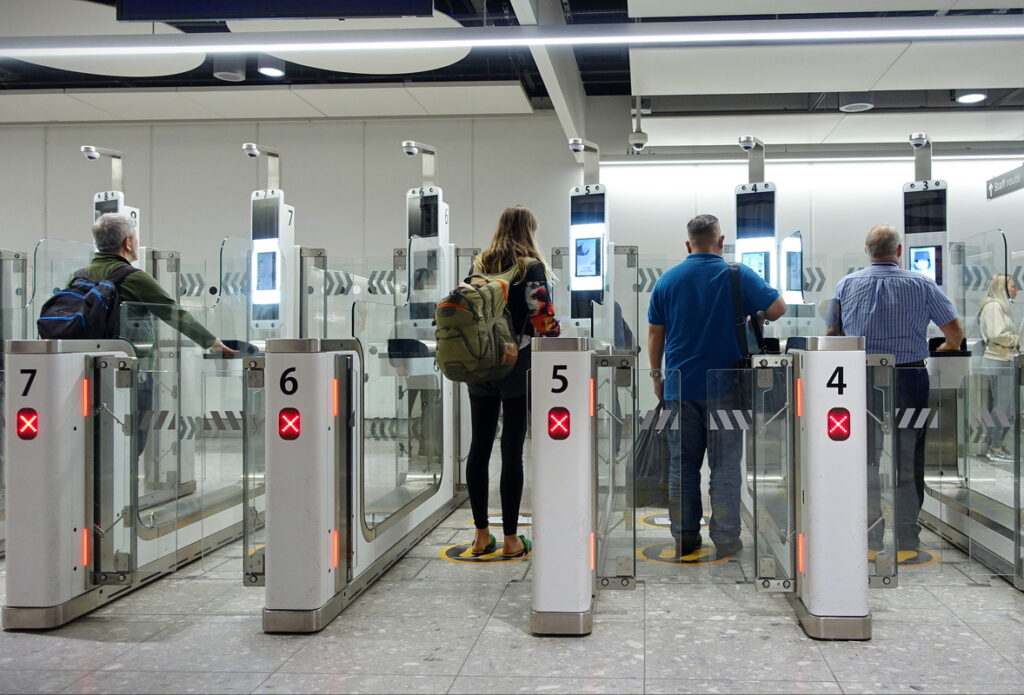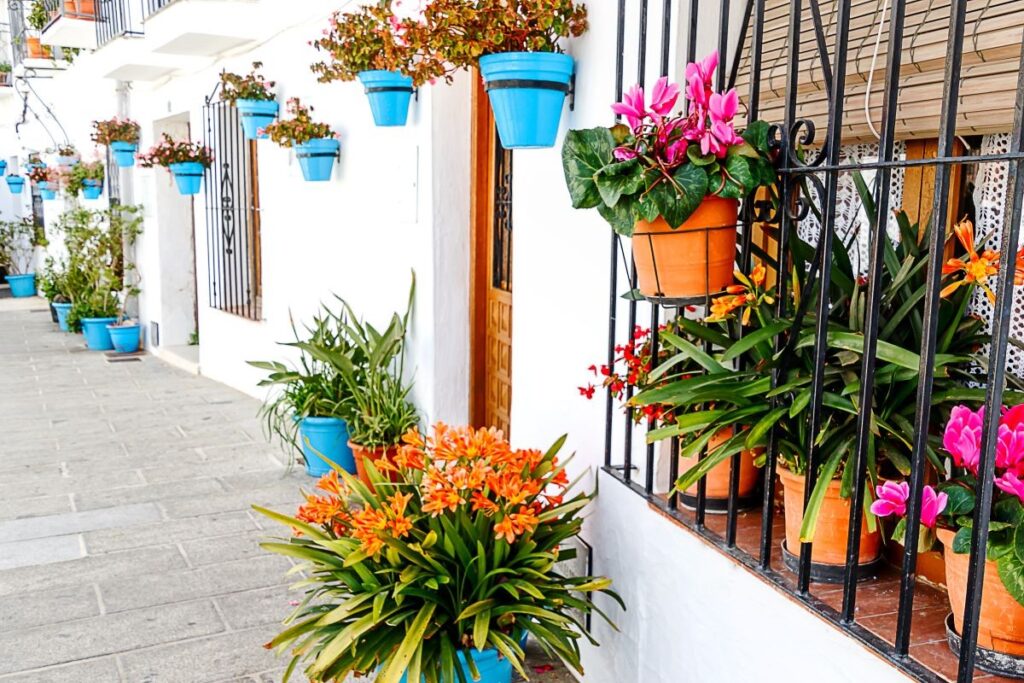The Promise of History, Culture, and Relaxed Coastal Living
Cádiz has stood the test of time. Having been settled for over 3,000 years, it is known as the oldest continuously inhabited city in Western Europe. But its appeal goes beyond historical significance. It boasts golden beaches, vibrant local culture, and a slower pace of life that many Expats seek.
It offers something unique: a place where you can truly immerse yourself in authentic Spanish life while enjoying the benefits of a coastal lifestyle along the Costa de la Luz. The surrounding areas, like El Puerto de Santa María and sherry-producing Jerez de la Frontera, add to the region’s charm, offering Expats more than just a place to live but a place to call home.
Cádiz
Living in Cadiz is an absolute joy. This friendly and sunny province, bathed by both the Atlantic Ocean and the Mediterranean Sea, remains unknown to most foreigners.
Population
Cádiz City: 112,000
Cádiz Province: 1.25M
Autonomous Community: Andalucía
Useful links
Ayuntamiento de Cádiz
Facebook: Expats Cadiz/El Puerto/Jerez
Real Estate: Idealista
The Expat community along the Costa de la Luz is relatively small — around 4% of the population — but vibrant. Cádiz and its surrounding area offer a unique blend of historic charm, beautiful beaches, and a relaxed lifestyle.

Expat Insider:
Lucy Lilley
Lucy Lilley is a community artist and ESL teacher who has fully embraced life in El Puerto de Santa María (Cádiz) since 2014.
During this time, she has relaunched her art career, established voluntary groups, and made a lasting local impact.
Personal Links
Stitch Café
Instagram: artsewwrite
The Heartbeat of Cádiz: Daily Life and Community
Community Spirit: Integration and Belonging
Cádiz is known for its strong community spirit, where locals and Expats come together to form a close-knit society. Whether it’s sharing meals at a family-run tapas bar or chatting with neighbors at the local market, there is a strong sense of belonging.
For many Expats, this is the most appealing aspect of life here — it’s relatively easy to integrate into the local culture. The locals are often eager to introduce newcomers to the joys of Cádiz, from teaching them the best spots for fresh seafood to involving them in local festivals and traditions.
In El Puerto de Santa María, Expats often report feeling embraced by both the local and international community. With a growing number of foreign residents, it has developed a comfortable environment where newcomers quickly find their place.
“El Puerto is a tourist destination,” says Lucy. “In July and August, the population grows hugely. My favorite months are April to June and late September to early November when it’s warm, you can swim in the sea, and the place is less crowded.”
Jerez de la Frontera, on the other hand, offers a more traditional Andalusian experience with its rich cultural roots in flamenco and wine-making that draw people together through shared experiences.
A beautiful example of how the local community cares occurred recently. Cádiz Football Club recently helped an 88-year-old woman avoid eviction from her home of 57 years. She faced a €147,000 purchase ultimatum, so the club’s foundation bought her apartment and now rents it back to her for just €97 a month.
Settling Down: Housing and Neighborhoods
Compared to major American and European cities, the cost of living in Cádiz and surrounding areas is quite affordable, making it an attractive option for retirees and those looking for a lower cost of living.
When it comes to finding a place to live, Cádiz provides an array of housing options to suit different lifestyles. In the old town heart of Cádiz, historic apartments are coveted for their charm and central location. This proximity to the sea adds to the appeal for Expats seeking a coastal lifestyle with all the conveniences of urban living.
But, as with many other places in Spain, the increase in tourism is making its mark on the real estate market. This double-edged sword, which, on one hand, brings in much-needed income to the city, also means many houses are used as Airbnbs and the like. So, this impacts prices regardless of whether you rent or buy a property in Cádiz.
El Puerto de Santa María offers more spacious housing, with many homes featuring larger outdoor areas or private pools. It’s a family favorite due to its quieter residential areas and easy beach and city access.
The local real estate market remains relatively affordable compared to other coastal cities in Spain, with options to rent or buy depending on your long-term plans.
However, rents have increased due to the general cost of living in Spain and tourism. Annual rental contracts are less common, and most places are available on ten-month contracts. This enables the owners to rent to tourists in July and August. As a result, some people are moving outwards — to places such as Jerez and San Fernando — buying cheaper properties and doing them up.
Essential Considerations
Working and Living: Employment Opportunities and Daily Routines
Cádiz may not have the bustling job markets of Madrid or Barcelona, but there are opportunities for those willing to adapt. Tourism is one of the largest sectors, with positions ranging from hospitality to language instruction. Expats often find work teaching English, especially in smaller language schools catering to locals who want to improve their business or conversational skills. Additionally, the rise of remote working from Spain has allowed more people to live in Cádiz while maintaining international careers.
The work-life balance is more relaxed than in many other parts of Europe, with plenty of time for socializing and unwinding. Cádiz essentially shuts down between 3 pm and 8 pm, with long lunch breaks, afternoon siestas, and late dinners with friends and family as part of their daily routine.
Bureaucracy and Paperwork
Navigating Spain’s bureaucracy can be a daunting task, but with patience and preparation, it’s manageable. To help, hiring a local administrative assistant (un gestor) can streamline things significantly. Recently, Lucy collaborated with a local company called BE Spain Savvy. This service helps Expats with limited Spanish to navigate local administration requirements and daily living needs.
Transportation and Getting Around
Cádiz is well-connected, making it easy to explore the surrounding region. Public buses run frequently throughout the city and connect Cádiz with nearby towns like El Puerto de Santa María and Jerez.
Lucy adds: “Getting out of town is easy, and I especially love visiting the surrounding white towns and going for days out in the countryside. My favorite spots are El Bosque, Arcos de la Frontera, Vejer de la Frontera, and the stunning beaches of Bolonia and Tarifa.”
For longer trips, trains offer efficient service to major cities like Seville. The ferry service between Cádiz and the Canary Islands is a popular option for those looking for a quick getaway (although this is not high-speed and takes around one-and-half days).
The roads are in good condition for those who prefer driving, and having a car makes exploring the picturesque Andalusian countryside more convenient. However, within the city itself, many residents choose to walk or cycle, particularly in the old town, where narrow streets and charming plazas are best enjoyed on foot.
Shopping and Amenities
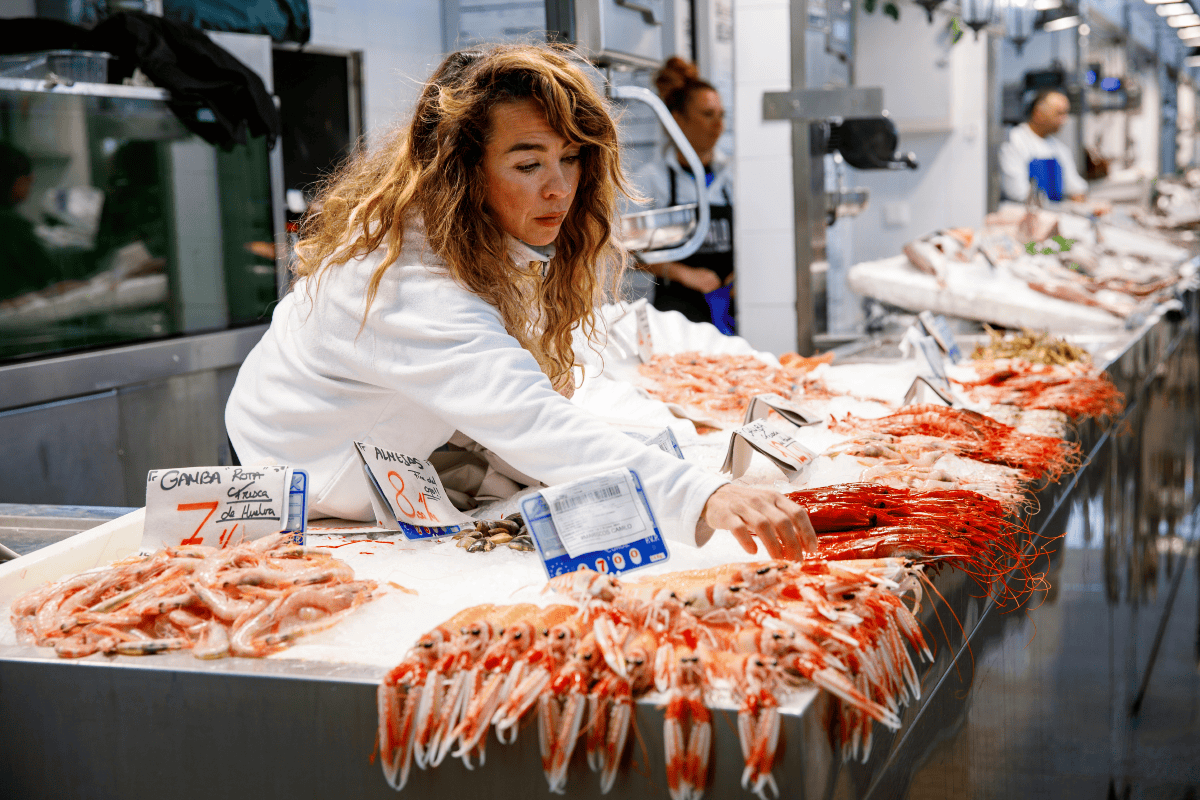
Cádiz offers a variety of shopping options to suit all tastes. The Mercado Central in the old town is a must-visit for fresh produce, seafood, and meats. It’s a hub of daily life and a great place to get to know your neighbors. Larger supermarkets are found throughout Cádiz and its surrounding towns, providing everything you need for daily living.
In El Puerto de Santa María, you’ll find a mix of traditional Spanish shops and more modern conveniences, while Jerez offers boutique stores alongside larger retail outlets.
Cost of Living
The cost of living in Cádiz is lower than in many other parts of Spain, particularly in comparison to cities like Barcelona and Madrid. Housing is relatively affordable, whether renting property or buying, and daily expenses such as groceries, dining, and transportation are reasonable. Expats often find they can enjoy a higher quality of life on a lower budget, making it easier to experience the leisurely pace of life that Cádiz is known for.
Education and Family Life: Raising Children in Cádiz
For families, Cádiz is an excellent place to raise children. The region’s relaxed pace and focus on community make it a safe and nurturing environment for young families. The public school system is highly regarded, and Expats can access both public and private options. While public schools are free, international schools and bilingual education options are available for those who want a more tailored approach.
Many Expat families find that their children adapt quickly to the new culture, often learning Spanish faster than their parents. The region’s emphasis on outdoor activities and social interaction helps children integrate smoothly, providing a rich cultural experience and shaping their worldview.
Health and Wellness: Access to Healthcare and Services
Spain’s healthcare system is ranked among the best in Europe, and Cádiz benefits from both public and private healthcare options. The public healthcare system is affordable and accessible to residents, though it may require navigating some bureaucracy to get started. Expats often opt for private health insurance to avoid long wait times for non-urgent care, with many affordable plans that cover a wide range of services.
Pharmacies are plentiful throughout Cádiz, with many offering a wide range of over-the-counter treatments, while hospitals and clinics provide excellent care.
Living Like a Local
A Taste of Life: Food, Festivals, and Traditions
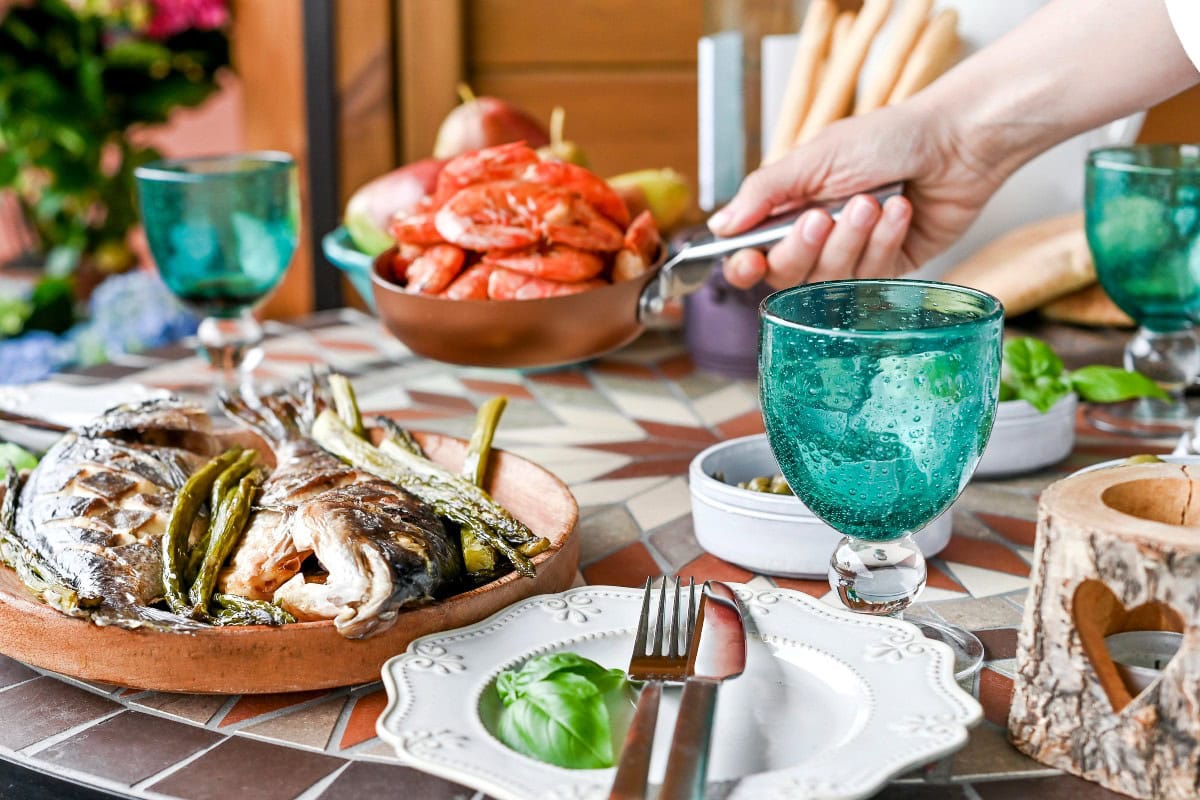
Food
Living in Cádiz means embracing the Andalusian way of life, which revolves around food, family, and community. The local cuisine is fresh, simple, and full of flavor, with seafood taking center stage. Whether you’re enjoying a plate of fried fish (pescaíto frito) at a beach restaurant or gathering with friends over tapas and sherry, the food culture here is something special.
El Faro is arguably the city’s most famous restaurant with its amazing seafood menu, but many new restaurants are now opening, which means the gastronomy vibe is strong.
Continuing the vibe in El Puerto de Santa Maria is the three Michelin stars Aponiente. Lucy’s favorites include the Stardust jazz club, Blanco y Negro café bar (both with rotating art exhibitions), Apriori, Bugalú, and Sedona Bar & Grill.
Jerez de la Frontera is world-renowned for its sherry, with the Lustau Bodega among its best producers.
Festivals
Festivals are also a vital part of life in Cádiz. The Cádiz Carnival is one of the most famous in Spain, with lively parades, elaborate costumes, and a spirit of fun that captures the city’s heart.
It also hosts one of the fast-growing Puro Latino festivals, a vibrant celebration of Latino music held across various locations in Andalucía.
Andalucía is the home of flamenco and the famous Feria — a fair that travels from town to town during late spring. These colorful and lively events involve locals in traditional flamenco costumes, dancing, and eating traditional food. The most famous ferias are Sevilla and nearby Jerez de la Frontera. La Feria del Caballo (Horse Fair) in Jerez showcases the area’s equine tradition.

You are spoilt for choice when it comes to flamenco. From professional theatre performances to outside street performances (arguably the most authentic), it is hard not to be enthralled by this unique art form that combines music, dance, and vocals.
Leisure and Recreation
Outdoor enthusiasts will find no shortage of activities to enjoy in Cádiz. The region is famous for its stunning beaches, swimming, surfing, and sailing opportunities. Inland hiking trails through the Andalusian countryside provide breathtaking views, while golf courses and tennis clubs cater to those looking for more leisurely pastimes.
El Puerto de Santa María boasts several beautiful beaches, including the Playa de la Puntilla, Playa de Valdelagrana, and Puerto Sherry. The last is a marina with a beach where you can sail and windsurf. It also has restaurants and shops, making it an excellent place for leisure and recreation.
The nearby protected areas of Los Toruños Nature Park have diverse ecosystems, including marshes and coastal dunes. It is ideal for hiking, birdwatching, and enjoying nature. In the summer, craft markets pop up along the banks of the Río Guadalete in El Puerto, Jerez de la Frontera (around Plaza del Arenal), and Cádiz. These markets are particularly vibrant, attracting both locals and tourists alike.
Lucy says: “I love the ongoing construction of the beachside walkway and wooden bike path that winds around the coastline. Taking you through the pine forests, it connects.
Arts and Entertainment
The cultural scene in Cádiz is vibrant, with flamenco performances, art galleries, and live music events throughout the year. Jerez de la Frontera, in particular, is a hub for flamenco, offering both casual performances in local bars and more formal productions at festivals. The city is also home to many art exhibitions and galleries showcasing contemporary and traditional Spanish works.
Outside of Cádiz, for culture, arts, and theatre, El Puerto de Santa María must be added to your list of potential places to live. One look at the town’s tourism Instagram account shows many things to do and see. “Must attend” events include the Monkey Week Music Festival and Insomnia Film Festival.
Life in El Puerto de Santa María has enabled Lucy to rediscover her passion for arts and crafts. She joined the Open Arts Factory as one of five resident artists and has added professional sewist to her CV. She offers arts and sewing courses throughout the academic year (see the Open Arts Factory for details of these and other events). This further inspired her to start two ventures: the Stitch Machine for sewing events and the Stitch Café, a monthly meet-up co-run with her friend Jeanna.
Social Life and Community
Making friends and finding social connections is as essential in Cádiz as anywhere else in Spain. The city’s strong sense of community makes it easy for Expats to get involved through local clubs, language exchange programs, or community events. Expats often find their social circle includes foreigners and locals, creating a rich and diverse social experience.
The Expat community tends to be from the UK and Germany, but there is also a significant American presence in Rota (about a 40-minute drive from Cádiz) due to the US Naval base there.
“I dived in headfirst,” says Lucy. “Immediate full immersion! I wanted to be part of the local community and deliberately chose to live where very few people I had contact with spoke English. Today, there are more Expats and a huge array of help from professional services like Moving to Spain and Expat and social media groups.”
She continues: “I am very community-minded and proactive. “While that has undoubtedly helped me, I think a key to living in Spain is keeping an open mind. I never thought I’d stay.”
Plan your Move Packages
Because we understand that every situation is unique we offer a personalized approach to your move. Get professional support from our team of experts, access to our tools and coaching options from Alastair and Alison.
Language and Communication: Learning and Speaking Spanish
While Cádiz is home to an increasing number of English speakers, particularly in the Expat communities, learning Spanish is essential for integrating fully into local life. Many Expats find that Spanish language classes or immersion programs help them build confidence, and locals are usually patient and encouraging as newcomers learn the language.
The Speak Machine
Lucy certainly didn’t wait for Spain to come to her. She quickly set up a language exchange (Intercambio de Idiomas), the Speak Machine, which still meets today. This got her meeting with locals and drew in the Expats who were around.
Having learned Spanish in Central America, Lucy found the Spanish spoken around her a little different. “With my Central American accent and country-specific words and phrases, I had to relearn Spanish ‘on the streets.’ For example, in Costa Rica, ‘pura vida’ is commonly used as a greeting and farewell, but it simply means ‘pure life’ in Spain. Also, ‘vosotros’ — a common word in Spain — is rarely used in Costa Rica, where “ustedes” is used.
Lucy advises: “Learn the language as best you can. It may sound obvious, but the better you get, the easier life becomes. Go beyond ‘dos cervezas, por favor,‘ and you’ll see. Things are slower but get faster as your language improves.
She recommends Uned distance learning courses at El Puerto’s Official Language School (Las Escuelas Oficiales de Idiomas) and Cádiz University’s intensive summer school.
“Don’t hideaway. Get out there! Go to bars and events and volunteer. This helps you put your roots down in the community.”
Managing Expectations: The Realities of Moving to Cádiz
Overcoming Challenges
Like any significant move, relocating to Cádiz comes with its challenges. Some Expats struggle with the slower pace of life, particularly if they’re used to a fast-paced environment. Bureaucratic hurdles can also be frustrating, as can adapting to a new culture and language. However, those who embrace the relaxed Andalusian lifestyle and are open to change often find that the rewards outweigh these challenges.
“Moving abroad does not come without sacrifices,” says Lucy. But if you are searching for a place in Spain with warm people, a vibrant culture, natural beauty, and plenty of social life, El Puerto de Santa María is for you.
The Unexpected Pleasures of Life in Cádiz
Life in Cádiz offers many unexpected joys. From the daily rituals of strolling along the promenade at sunset to discovering hidden tapas bars and forging friendships over long lunches, Cádiz reveals its charms slowly but surely. For many Expats, the true pleasure of living here is found in these simple, everyday moments in this southwest corner of Spain.
Conclusion: Is Cádiz Right for You?
If you value community, history, and a laid-back lifestyle, you have every chance to thrive in Cádiz. Families looking for a safe, nurturing environment, retirees seeking peace by the sea, and remote workers wanting an affordable, sun-drenched locale will all find Cádiz a perfect fit.
The cost of living, beautiful weather, and welcoming atmosphere are significant pros, while limited job prospects and language barriers may be considered cons by some.
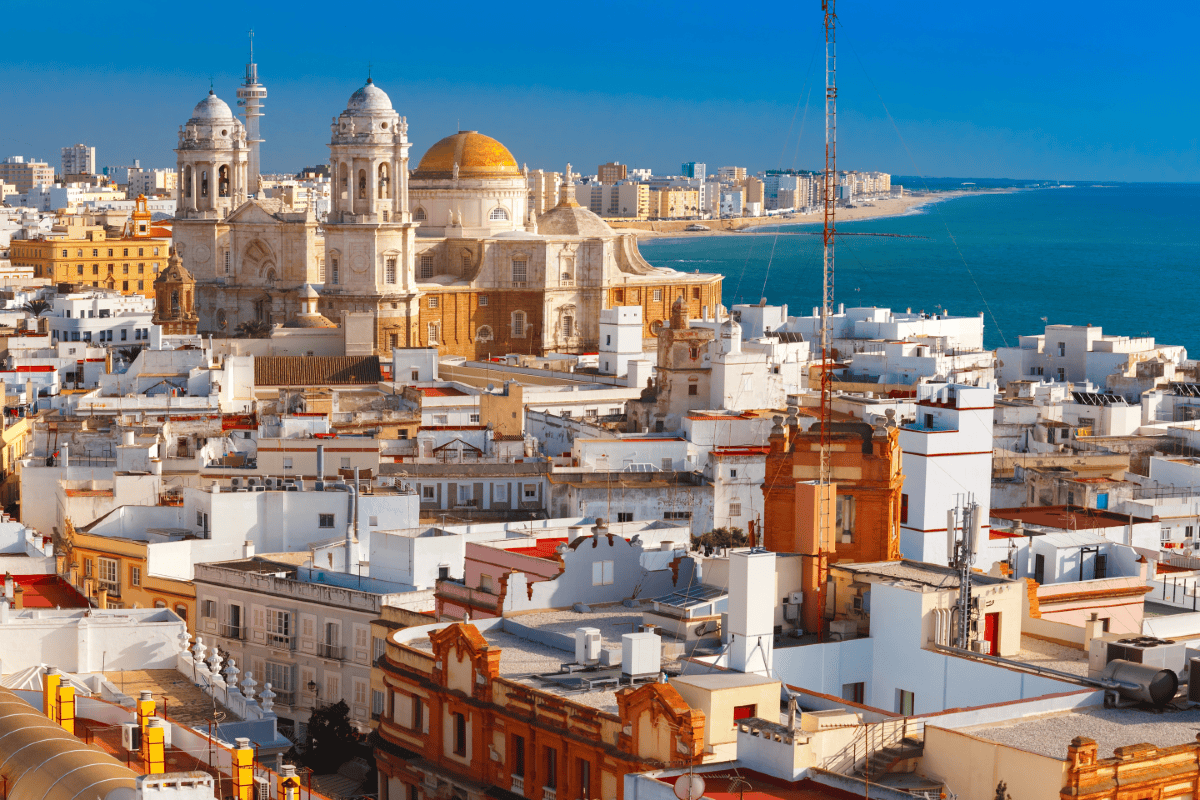
Ten years after arriving in El Puerto de Santa María, Lucy has firmly put down her Spanish roots. The Spanish are very welcoming, and Lucy has proved that getting among the community and putting yourself forward will guarantee you can make a living in Spain a success.
“Now and then, I look at how my life here has developed and realize what a wonderful place this is. It’s funny how my one-time travel experience became a lifestyle choice,” she concludes.
In summary, Cádiz and its surrounding area, including El Puerto de Santa María and Jerez de la Frontera, offer a unique blend of coastal beauty, rich history, and a vibrant local culture. The decision to move to Cádiz promises a fulfilling and enriching experience, particularly for those who immerse themselves in the local way of life. While the adjustment may come with some challenges, the rewards of living in this beautiful part of Spain are very much worth it. If you’re looking for a slower pace, a welcoming community, and the chance to live like a local, living in Cádiz may be the perfect start to your next life chapter.


